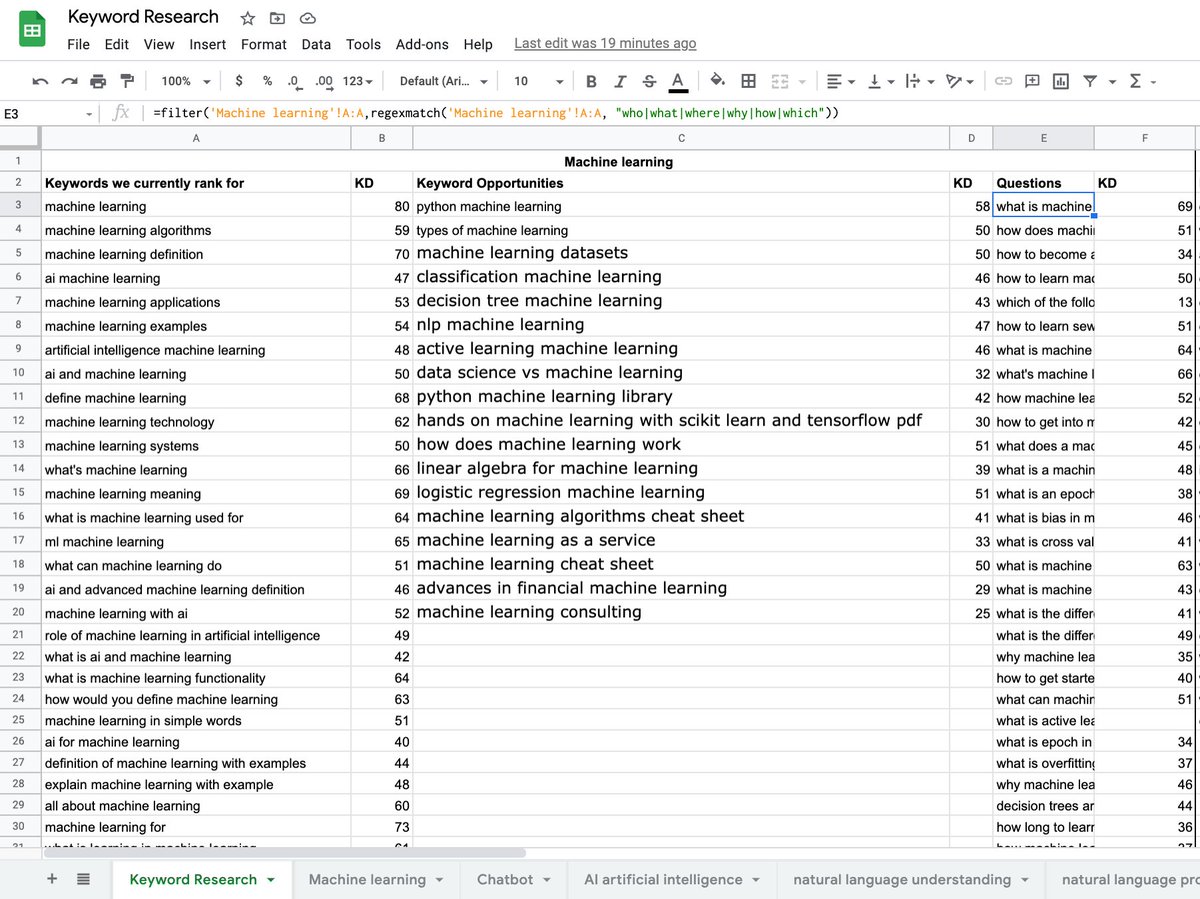
Supercharge Your Keyword Research Process By Incorporating Search Intent Classification
Use this SEARCH INTENT KEYWORD CLASSIFIER (Data Studio Dashboard)
datastudio.google.com/u/0/reporting/…
Use this SEARCH INTENT KEYWORD CLASSIFIER (Data Studio Dashboard)
datastudio.google.com/u/0/reporting/…
Recently, during a webinar I heard an absolutely magnificent piece of insight, which inspired me to create the resource I am sharing today:
‘There is no such thing as keyword cannibalization, only search intent cannibalization’
Bernard Huang, Co-Founder of Clearscope
‘There is no such thing as keyword cannibalization, only search intent cannibalization’
Bernard Huang, Co-Founder of Clearscope
I am presenting a keyword classifier Data Studio Dashboard, which utilizes the search intent categories we know and use:
* informational
* navigational
* transactional
* commercial
* informational
* navigational
* transactional
* commercial
Setting up is as easy as 1-2-3:
1. Export data from Semrush or Ahrefs.
2. Copy the Search Intent Keyword Classifier Data Studio Dashboard
3. Connect your data
(optional) 4. Create a multi-page report, using different keywords to create a 360-degree view of a topic cluster.
1. Export data from Semrush or Ahrefs.
2. Copy the Search Intent Keyword Classifier Data Studio Dashboard
3. Connect your data
(optional) 4. Create a multi-page report, using different keywords to create a 360-degree view of a topic cluster.
Using the dashboard in your content creation process
1. Get an overview of the keyword cluster.
2. Find out what the search intent keyword distribution is for a related keyword.
3. Search keywords by type of SERP feature.
1. Get an overview of the keyword cluster.
2. Find out what the search intent keyword distribution is for a related keyword.
3. Search keywords by type of SERP feature.
Read the full guide on how to use the dashboard on my website:
lazarinastoy.com/supercharge-yo…
lazarinastoy.com/supercharge-yo…
• • •
Missing some Tweet in this thread? You can try to
force a refresh





